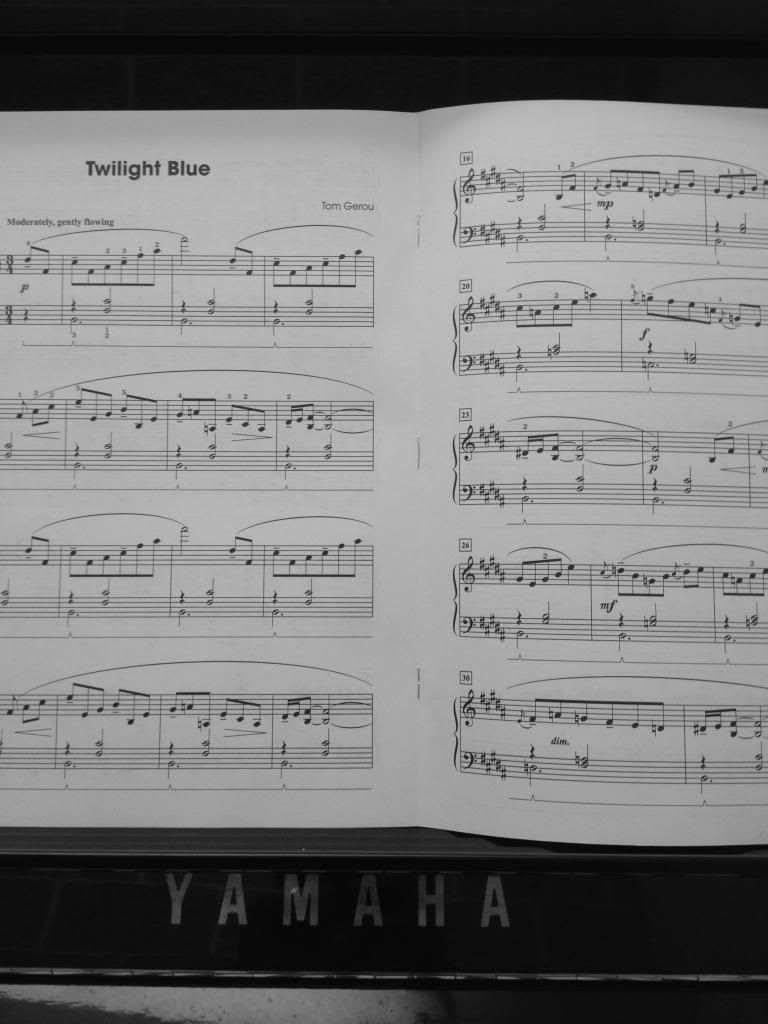
I'm a Music major. I practice my instrument, piano, at least 12 hours a week, so that come jury time I can try to show my improvement over the semester in under five minutes. I take 11 classes for 17 credits. I am in 4 ensembles that require not only more practice but also at least one (sometimes two or three) performances on weekends. I have to go to every single music production on campus for a 0 credit class (yeah, those exist), and if I miss one of the actual classes for that 0 credit class I'll fail. It's easy to start thinking about how hard the major is and wondering if I'm even talented enough to make it instead of pointing my eyes on Christ. Even though I go to a Christian college where I attend chapel 3 times a week and go to various Bible studies, it's easy to completely disconnect my performing and music from Christ. But, then there are days when I am sitting in music classes learning about borrowed chords and conducting techniques and suddenly a Biblical concept finally just clicks for me.
I'm in Advanced Conducting, which to non-musicians may sound like an "easy A" sort of class. But if you're familiar at all with music you'll know that clear conducting is vital to performing and for the most part the conductor doesn't get much credit. If you go and listen to a phenomenal orchestra play a two hour long symphony chances are that you'll marvel at the talent of the musicians, the violinists that were playing as if their fingers may tumble on top of each other or the tuba player who held a note for a number of bars. What you don't think about is the talent of the conductor. Before I came to college and became involved in a number of ensembles I had no idea the importance of a conductor. The musicians knew and played their part, and that was it. But now that I've been involved in large groups I can understand the importance of a good conductor. When playing in a large group it's easy to get lost. You have a part completely separate from the majority of the other musicians, but it needs to fit perfectly. If someone is off by half a beat it may ruin the entire flow. So that's where the conductor comes in. The conductor has the full score, he or she knows the parts of every individual and is there to keep everyone going. The conductor has the full picture, while the musicians only have a little glimpse of what's really going on. But this does absolutely no good if the musicians aren't keeping their eyes on the conductor. The conductor tries to communicate in every way without words what the future is holding for them, he or she is trying to cue everyone in at the right moment and they're keeping time. But, if the musicians aren't keeping their eyes on the conductor it doesn't matter how spot on the conductor is, the music won't be right. If you don't understand that the conductor really does know best and you aren't watching him or her, you're in for a world of trouble.
This is not unlike our relationship with God. He has the full score, He's studied the score, and He knows exactly when your part is supposed to come in. He's keeping the time, He's cueing, and He's communicating with us as perfectly. But, if we aren't keeping our eyes on Him we'll never be able to see when He's giving us that cue. We'll just follow along on our sheet music, thinking that's all that we need to do. But, because we're human we'll miscount a measure or two and get lost. How much better would it be if we would just keep our eyes glued on the Conductor, trusting in Him to know the score?
No comments:
Post a Comment
From the bottom of my heart I thank you for taking the time to read my blog. Please, don't hesitate to leave comments or suggestion!